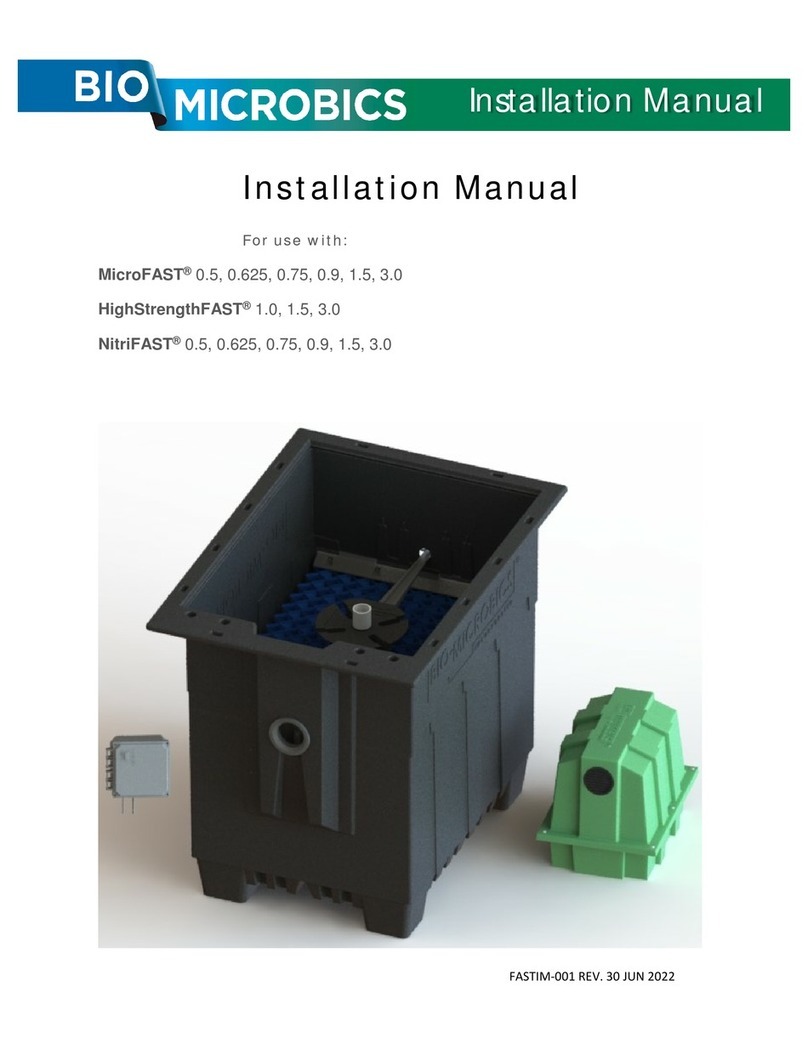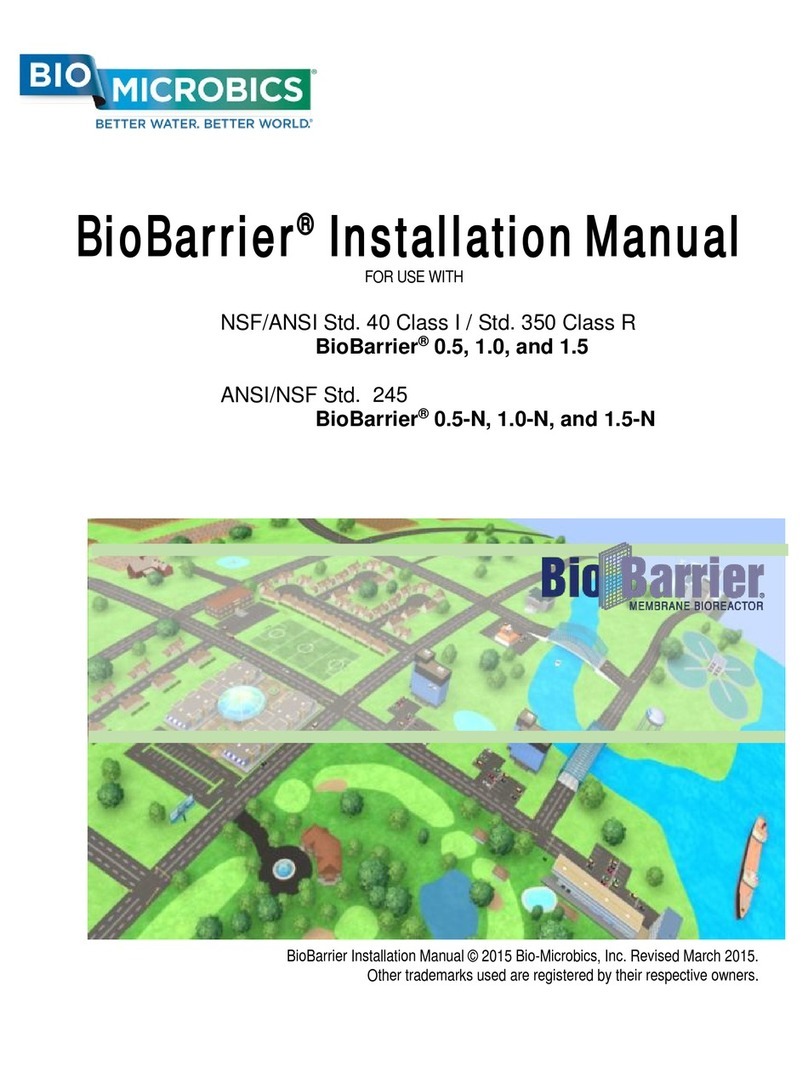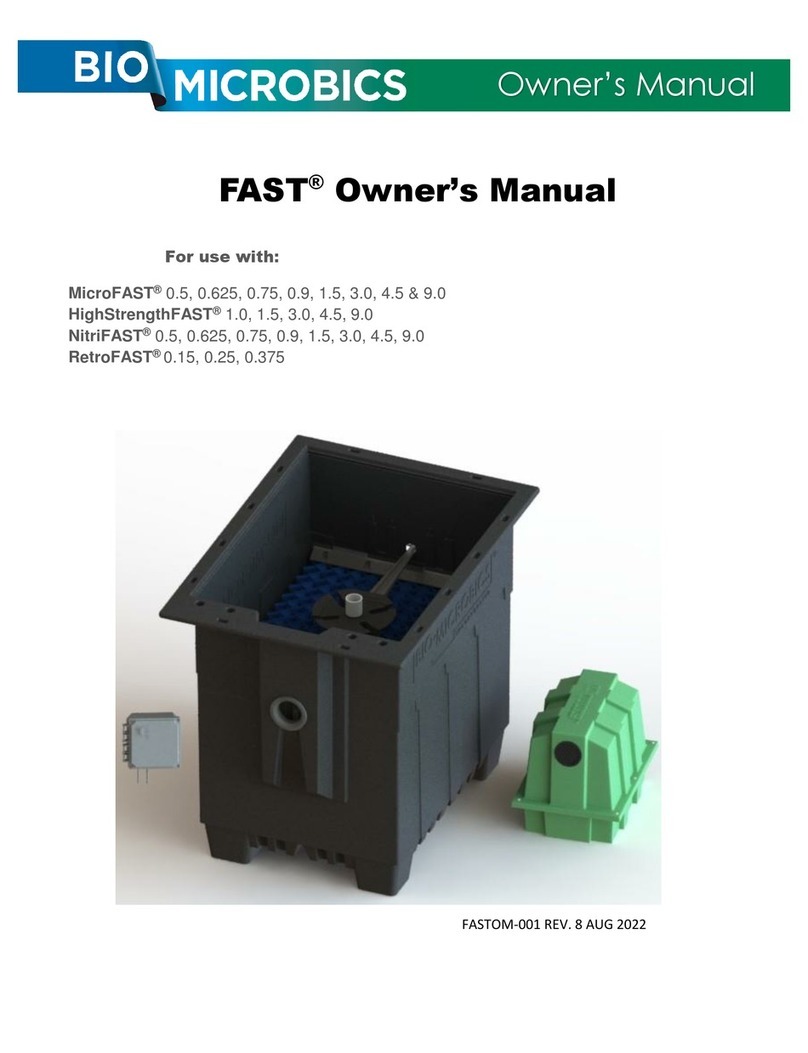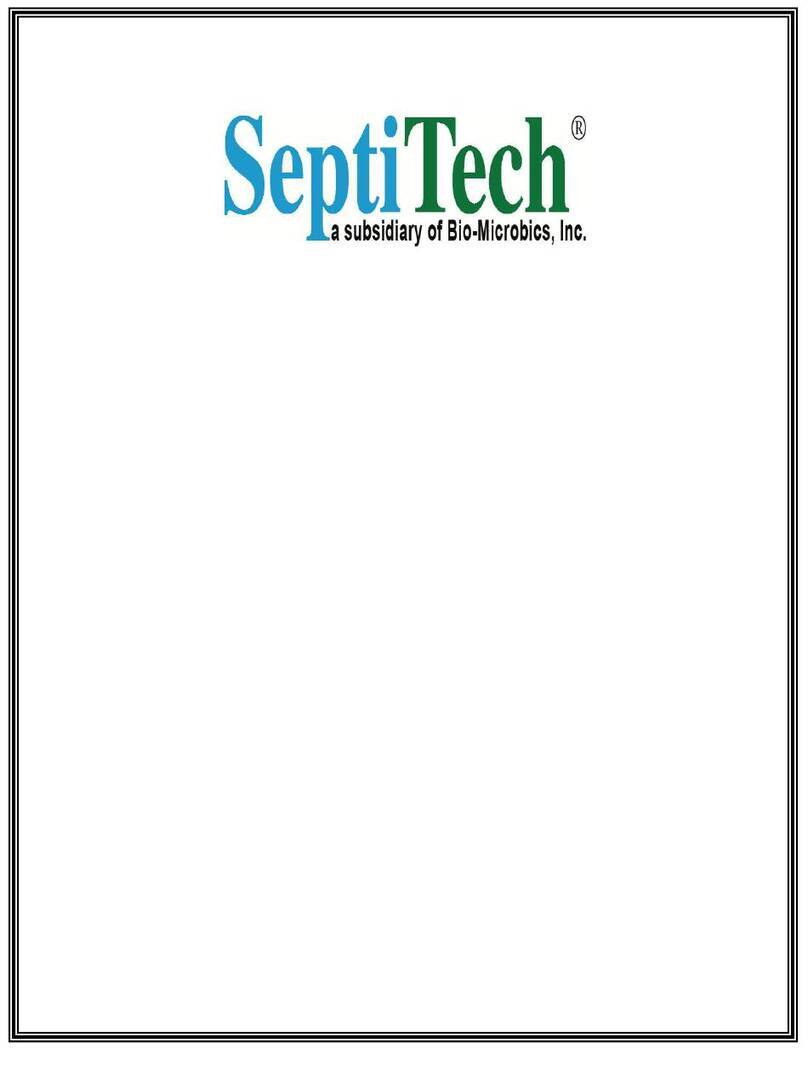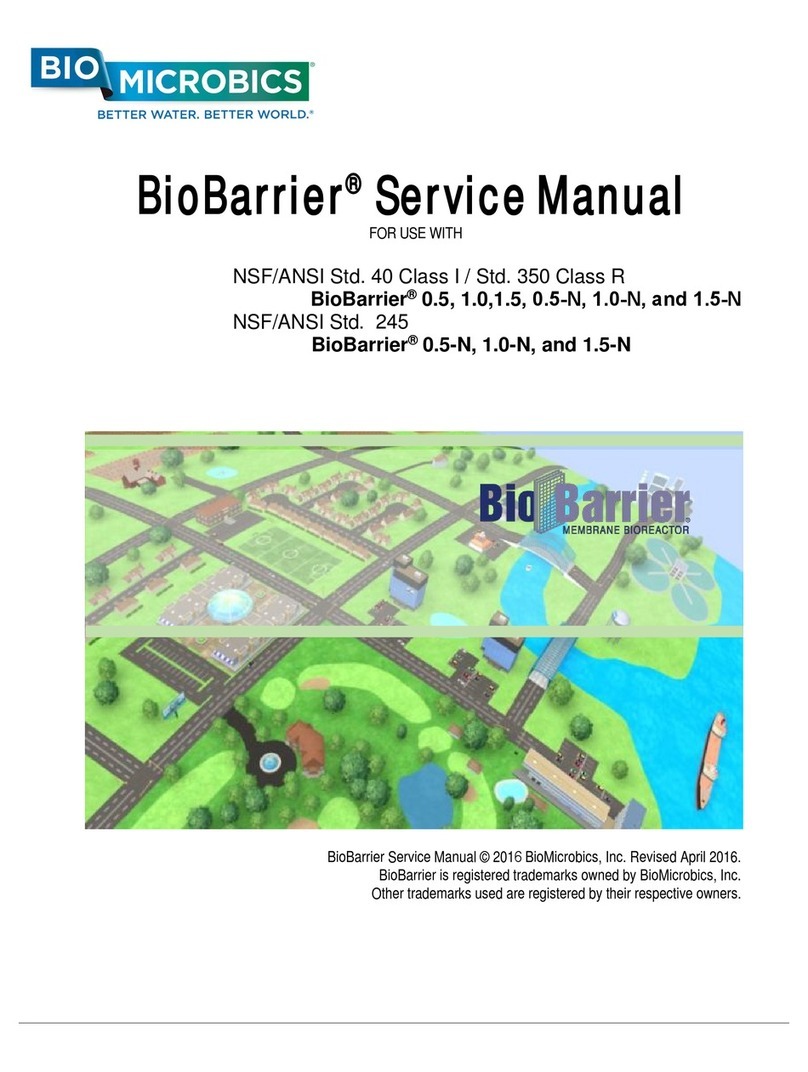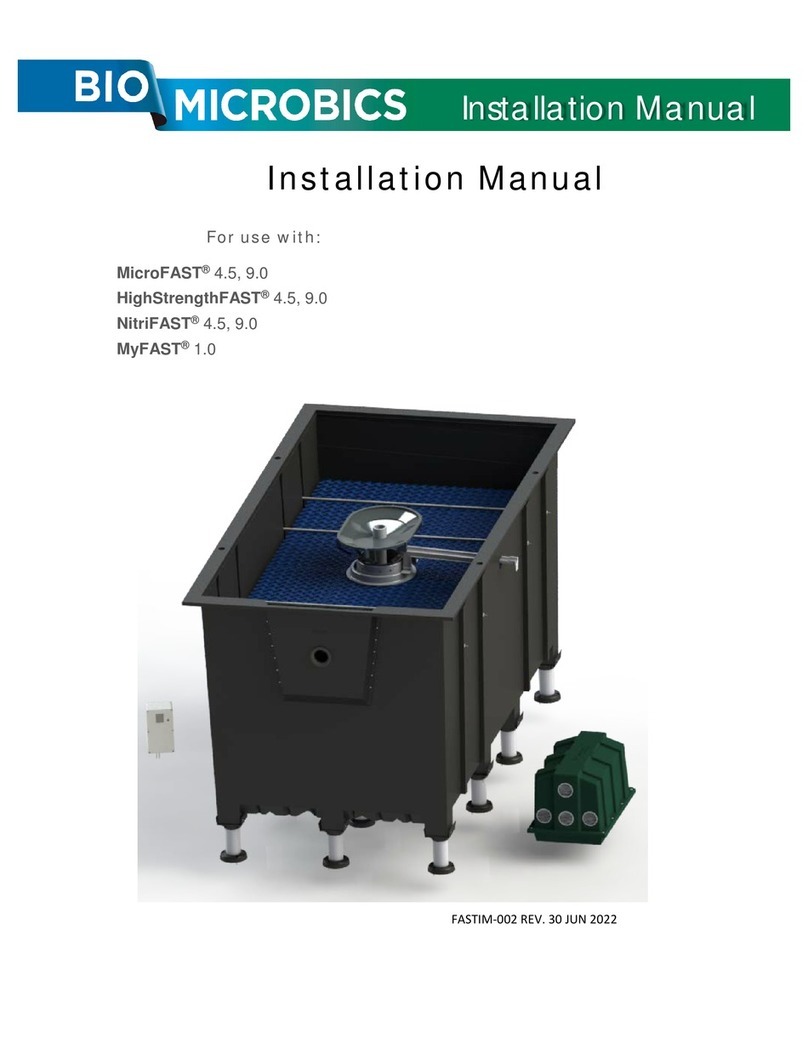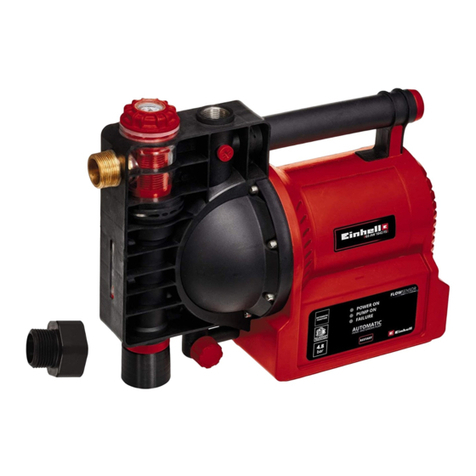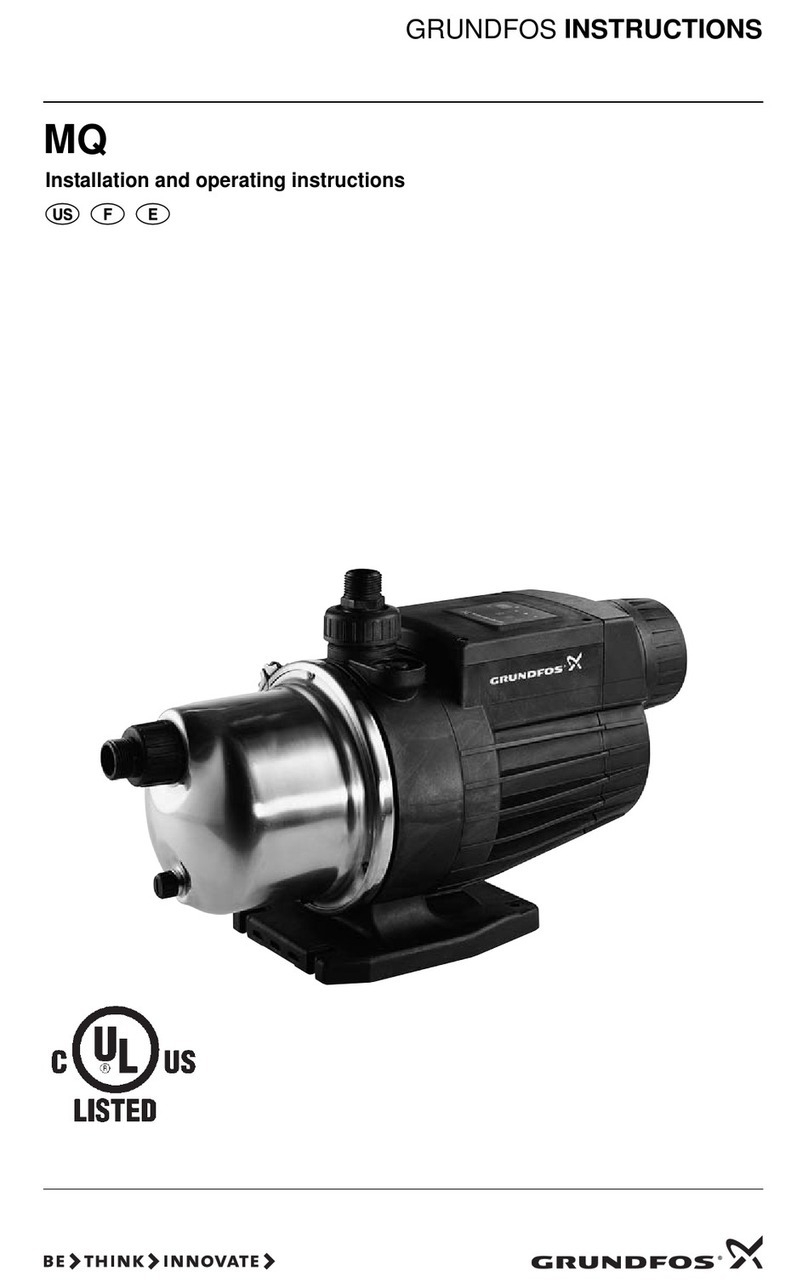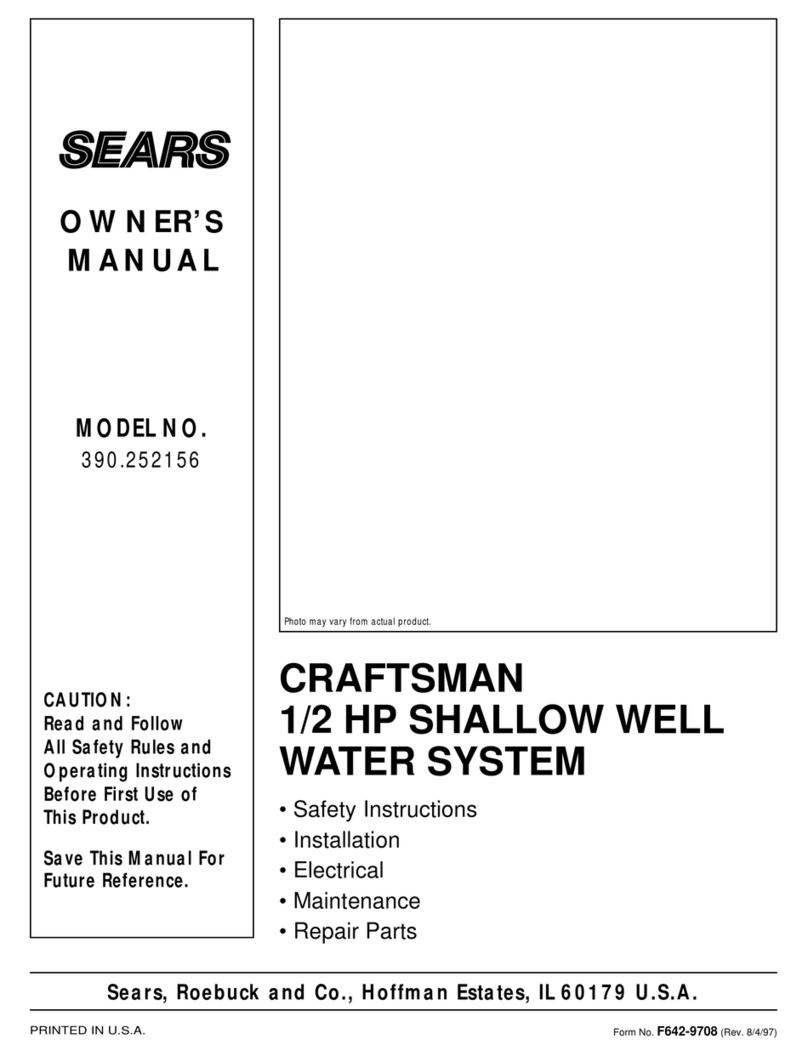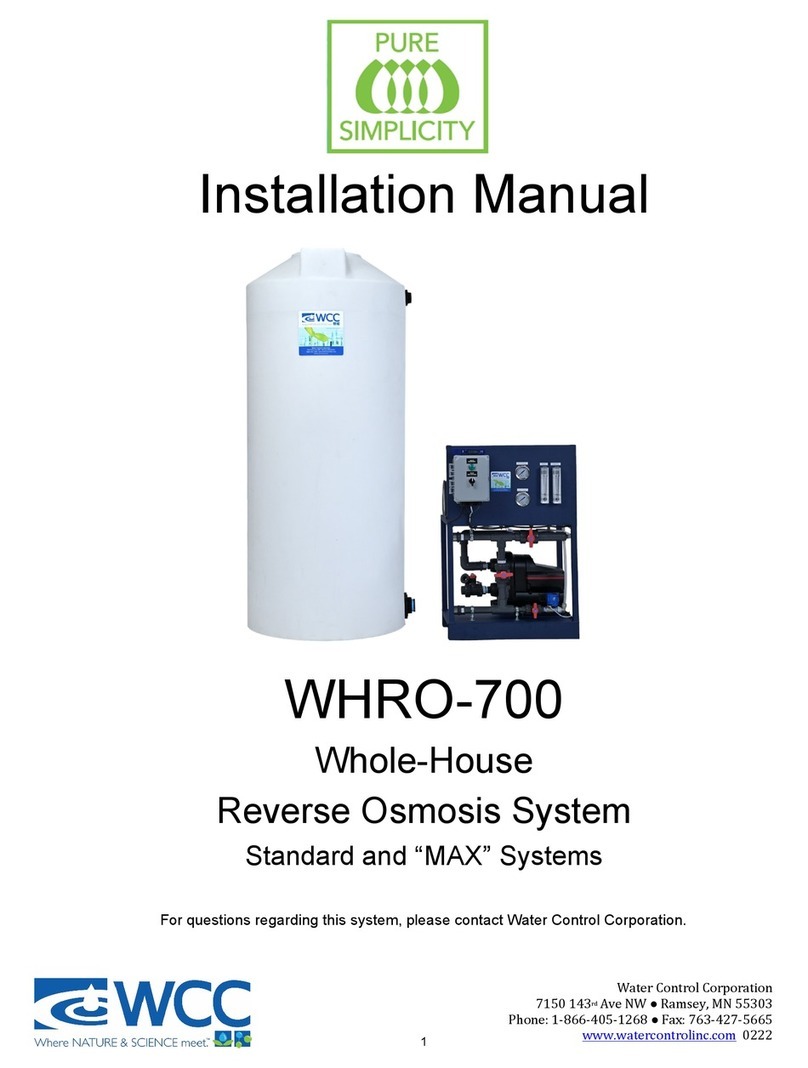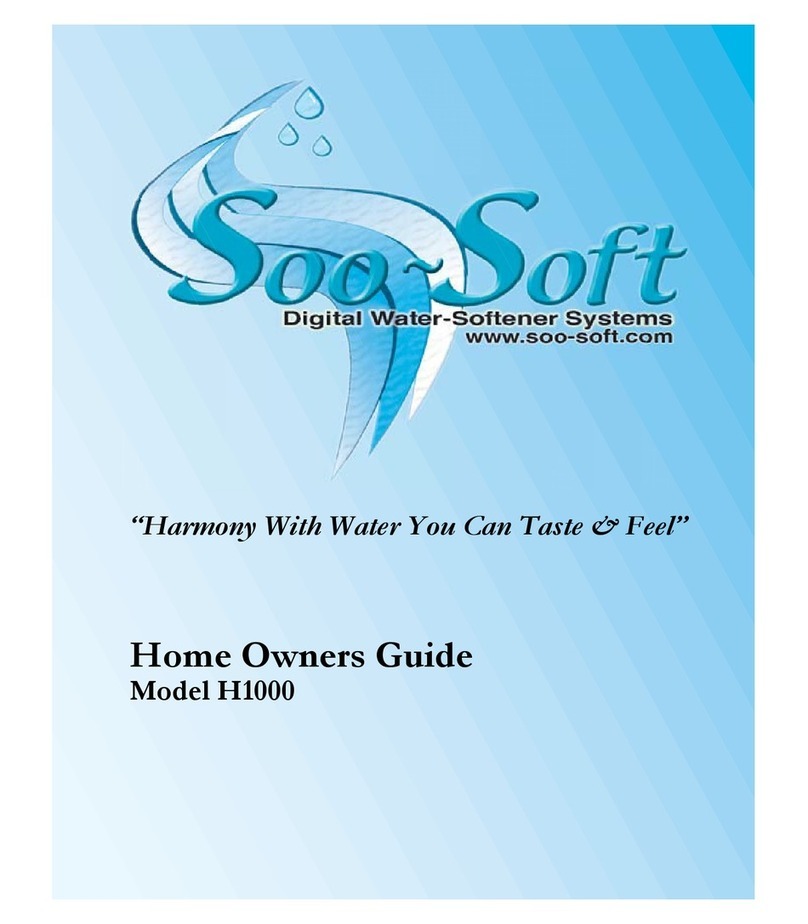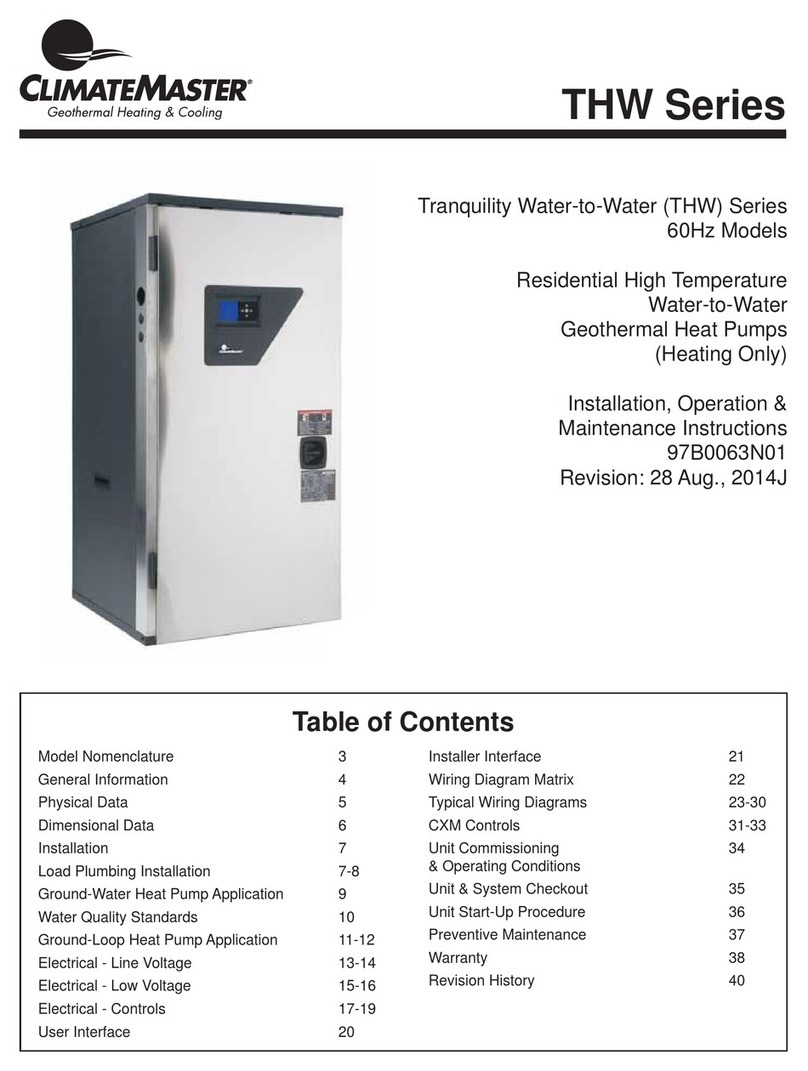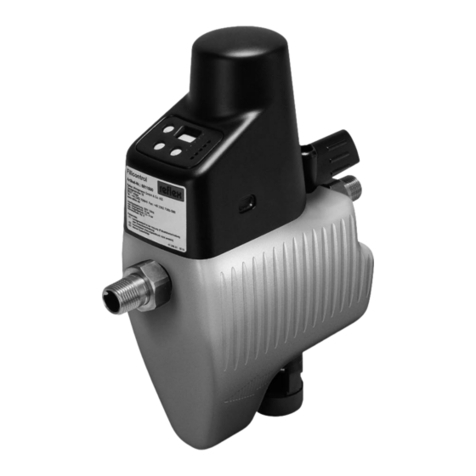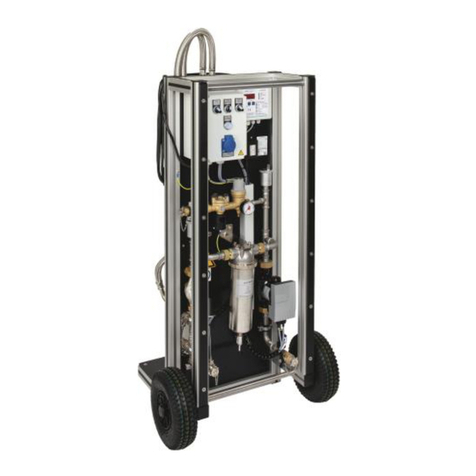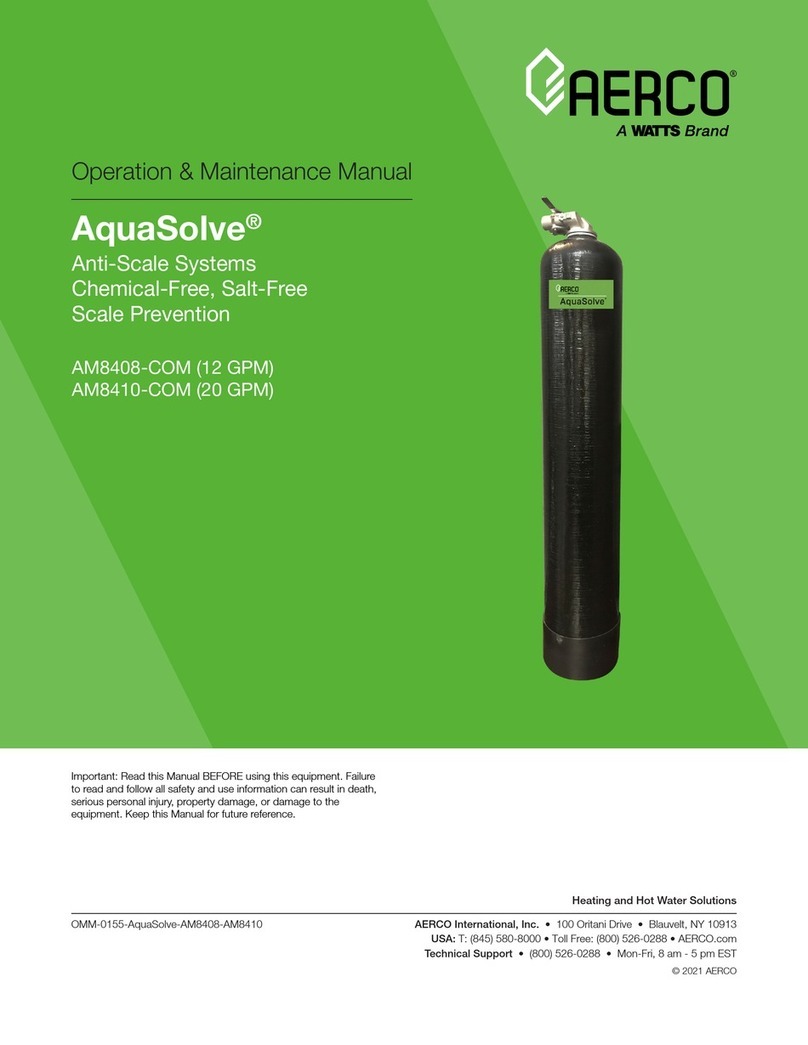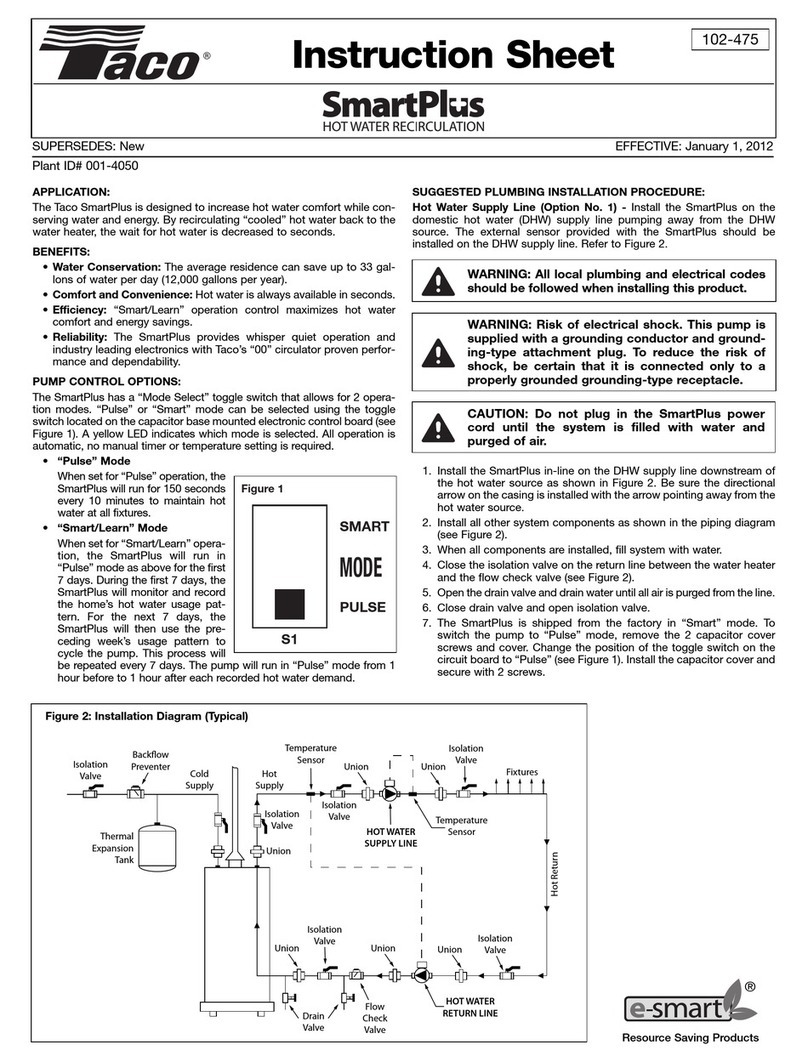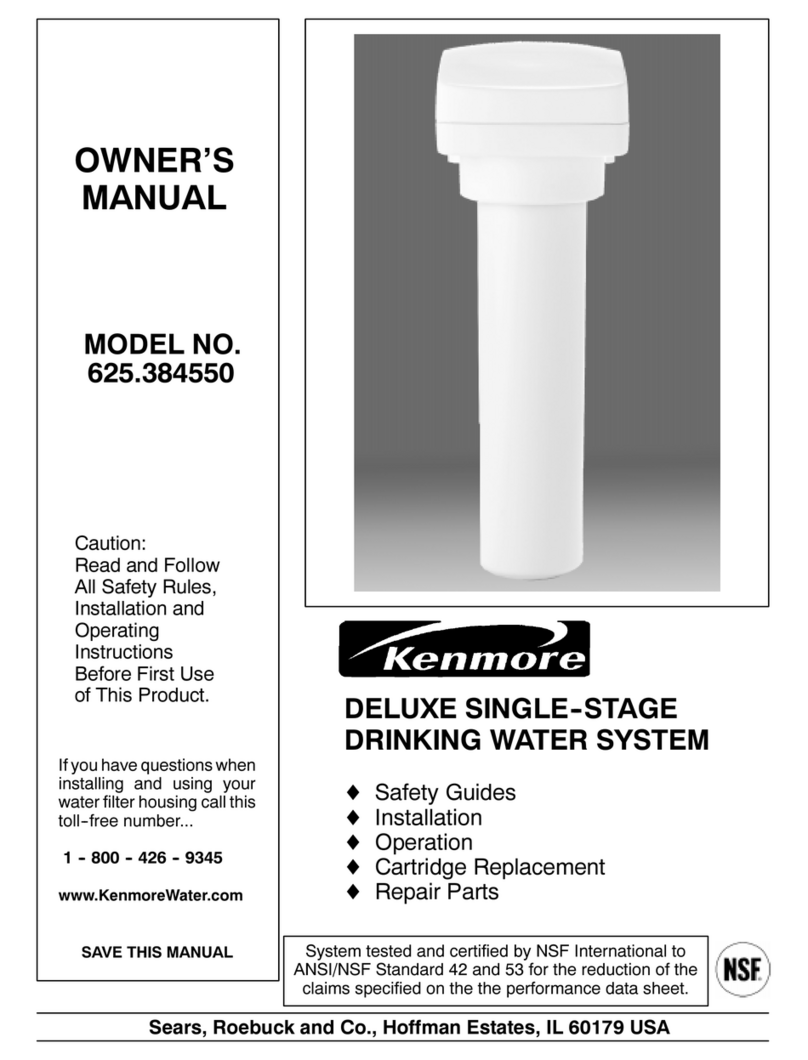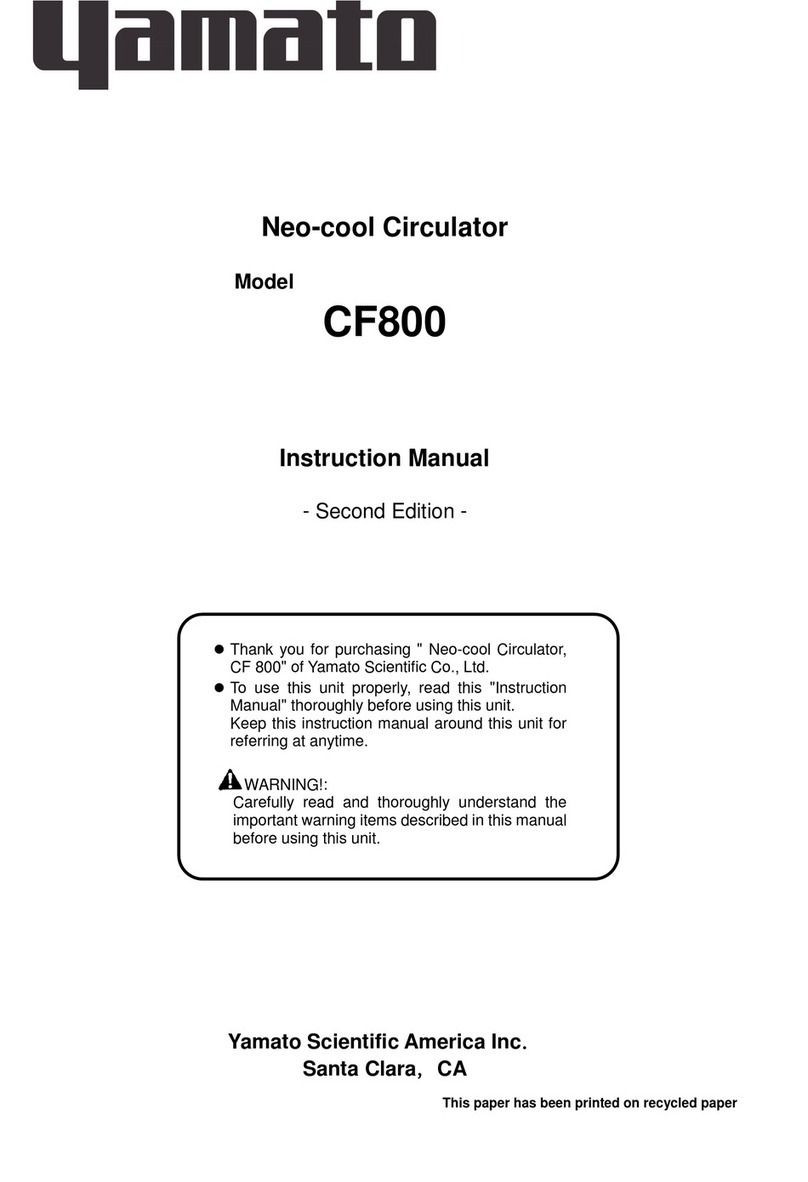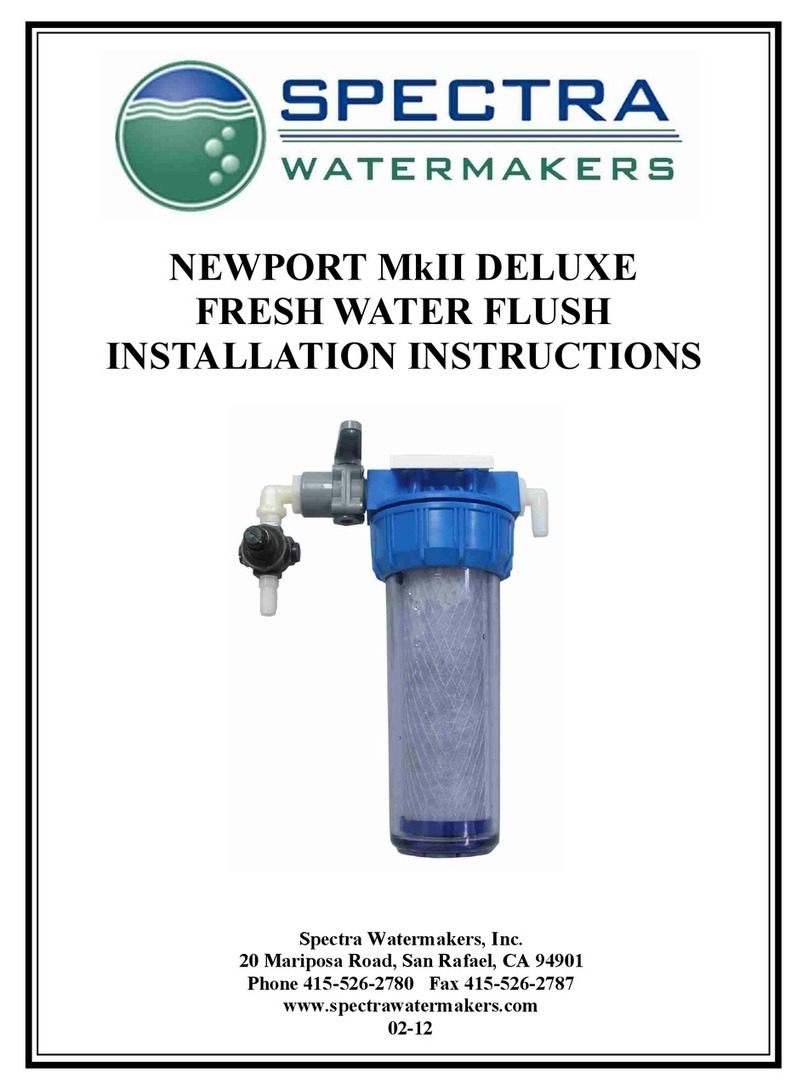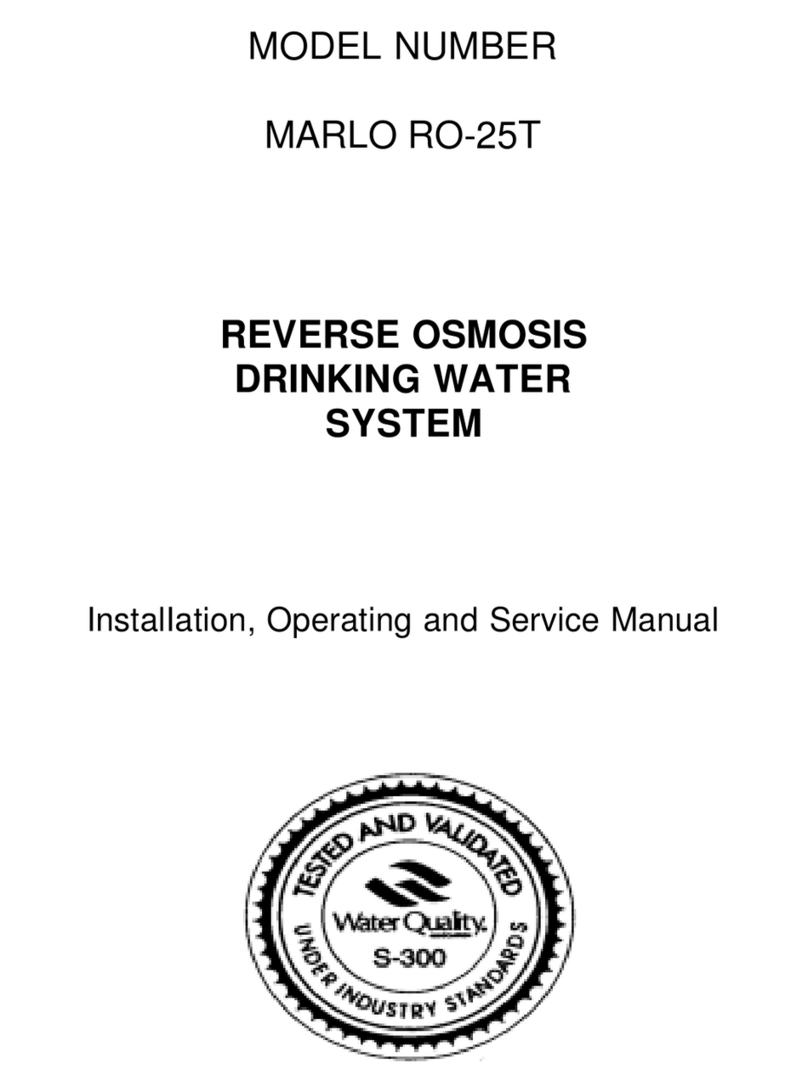
DO’S & DON’TS…...What can I put down the drain?
Please refer to the list below for important information on how to help keep your treatment system performing, as it should. Do
not put these items down the drain:
ANIMAL BONES/SKIN EGG SHELLS PESTICIDES
AUTOMOTIVE FLUIDS FILM DEVELOPING WASTE PLASTICS
BANDAGES FLOOR STRIPPER RAGS
CAT LITTER HERBICIDES RV WASTE
CAUSTIC CLEANERS HOME BREWERY WASTE SANITARY NAPKINS
CIGARETTE BUTTS MELON RINDS SOLVENTS
COFFEE GROUNDS METAL OBJECTS STICKS
CONDOMS MODELING CLAY STRING
CORN COBS PAINT THINNERS
DISPOSABLE DIAPERS PAPER TOWELS WET WIPES
RECORD KEEPING
Keep a copy of all pertinent literature (including this manual),
plans and service records about your wastewater system
along with other home appliance documents, which may
include drawings/plans of the site and all installed
equipment. Record all applicable information at the back of
this manual.
REGULAR MAINTENANCE
Should be performed by a qualified service company;
regular, professional maintenance is the best method for
ensuring long life for your system.
LAUNDRY/WATER USAGE
Spread wash loads throughout the week. Instead of liquid
fabric softener, dryer sheets should be used. Use low-suds,
biodegradable and low phosphate detergents. Always follow
manufacturer’s directions. A wastewater treatment system
will perform most efficiently when water consumption is
spread evenly throughout the week.
LEAKY FIXTURES
Large quantities of water are added to your wastewater
treatment system when you have leaking fixtures. Timely
detection and repair can help to maximize the life of your
system (especially the drain field).
WATER SOFTENERS CAN HARM THE SYSTEM.
The FAST® process may tolerate frequent, small
discharges. However, these discharges can possibly
damage other parts of the septic system.
FOOD WASTES
From a garbage disposal is acceptable, if allowed by your
local regulatory authority. Be aware too much food and FOG
(Fats, Oils, and Grease) through the garbage disposal may
overload or prevent the system from operating correctly.
Both natural FOG (i.e. animal fat, canola, oil, etc.) and
synthetic oils can prevent the bacteria from fully breaking
down the waste.
DISINFECTANTS/CLEANERS
Use according to the manufacturer(s)’s recommendations.
Cleaners that use sodium borate, sodium bicarbonate and
sodium carbonate are suitable for use. Products containing
quaternary ammonia sanitizers (liquid fabric softener,
commercial cleaners, etc.) or pine oil cleaners should not be
used. Use drain cleaners as a last resort to unclog pipes.
PERSONAL CARE PRODUCTS
Be aware that some hair care products add harmful oils and
chemicals to the system. Use anti-bacterial products and
other personal cleaning products according to product
instructions.
MEDICINES
ALL antibiotic medicines are harmful to the treatment quality.
Unused medications should be returned to your pharmacy,
doctor, or thrown away in the trash. DO NOT FLUSH THEM
DOWN A DRAIN. As the human body only absorbs ≤20% of
these substances, please notify your service provider if a
person in the house is using medicine. This could reduce
troubleshooting efforts and possibly your maintenance bill.
SEPTIC TANK ADDITIVES/ENZYMES
Should not be used; these may do more harm than good.
The natural sewage present in the system contains all
required bacteria and enzymes for proper operation.
HARSH CHEMICALS/TOXINS
Should NOT be put into the system. This includes, but is not
limited to: floor stripper, paint, solvents, thinners, caustic
cleaners, pesticides, herbicides, film processing waste, etc.
PAPER PRODUCTS
Use white toilet paper products. Some color dyes in the
paper cannot be eaten by natural bacteria. Non-bleached
paper (brown in color) takes longer to break down and can
therefore increase your bio-solids pump out frequency.










